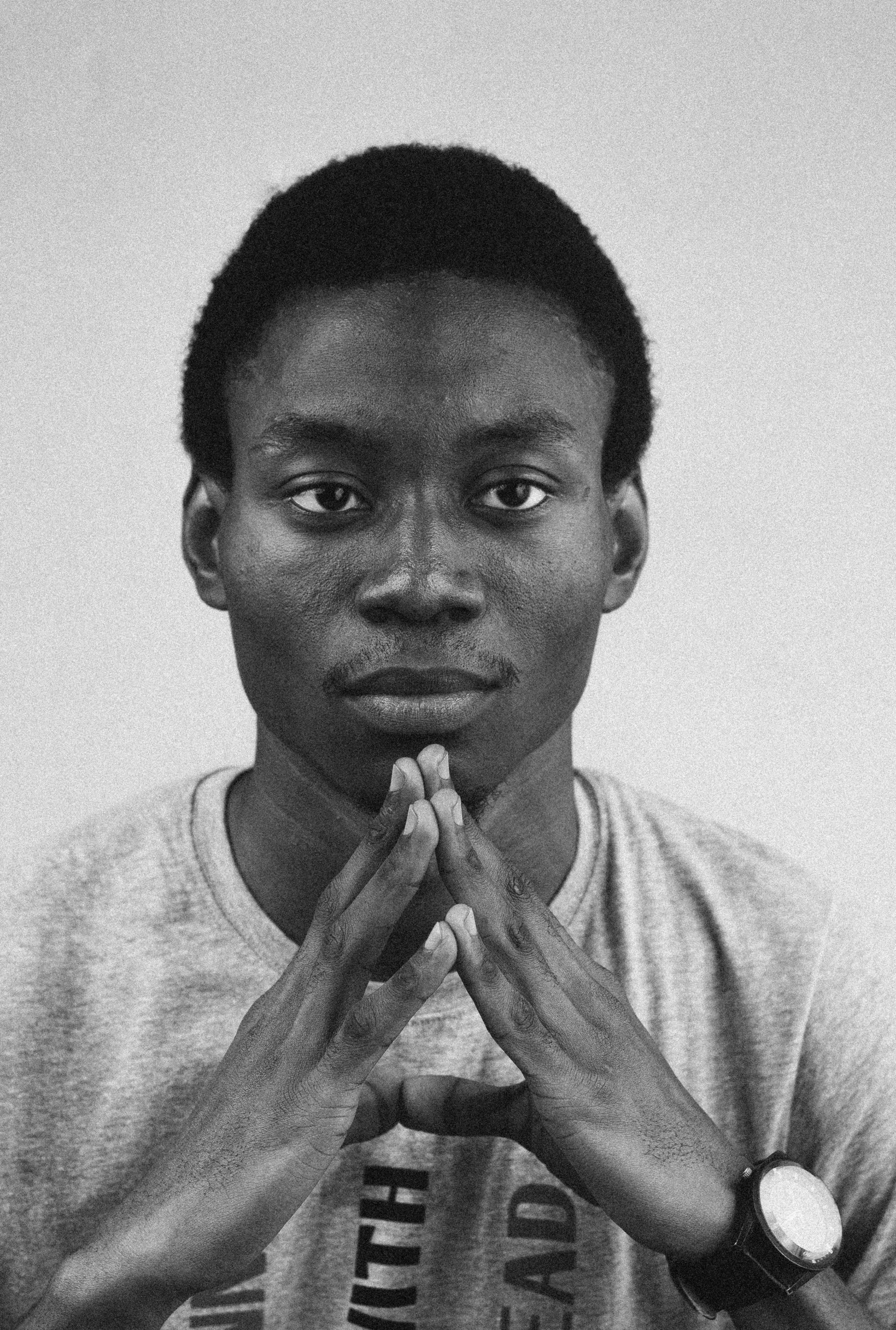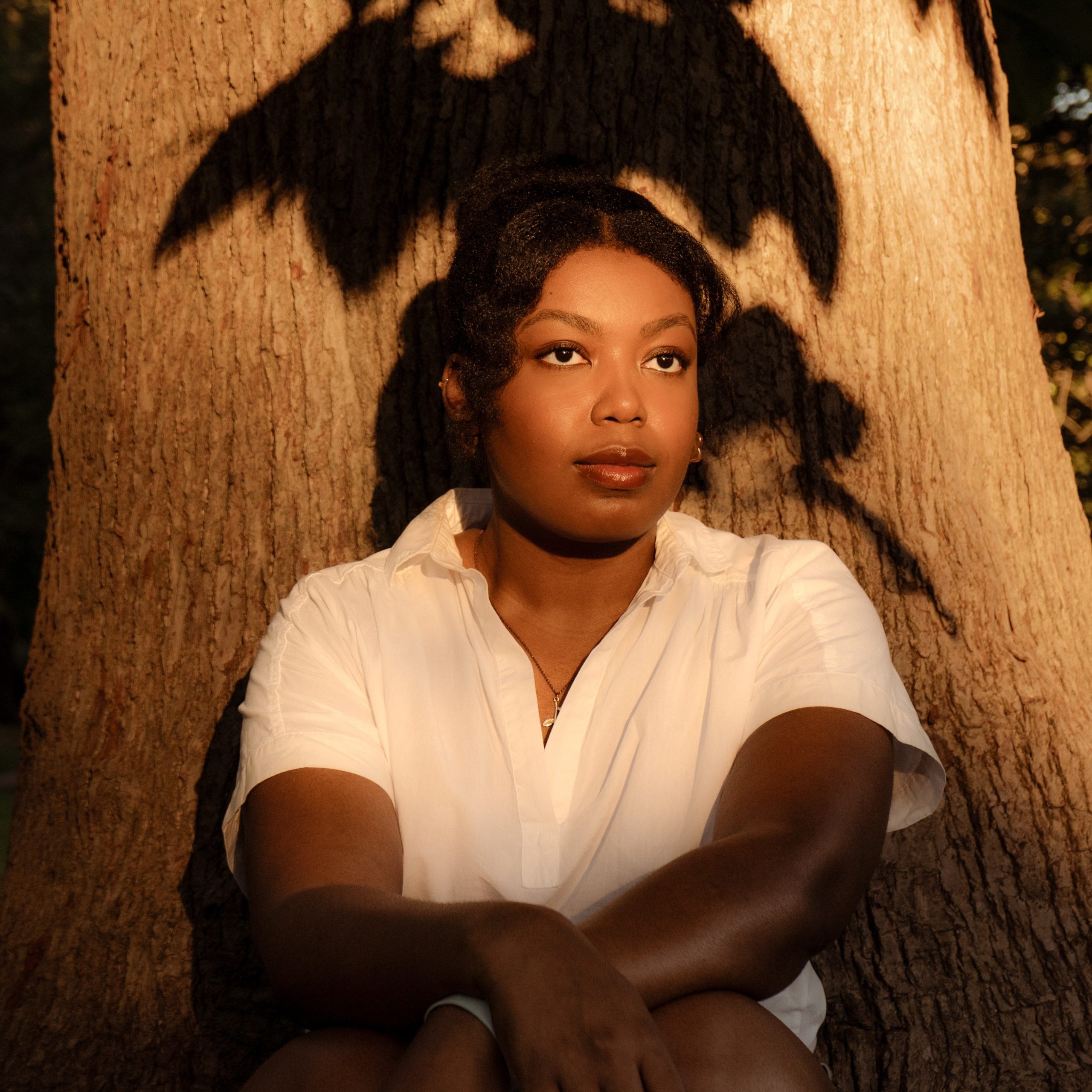Ariana Benson (she/they) is a southern Black poet born in Norfolk, Virginia, USA. For her debut collection of poems Black Pastoral, she won the 2022 Cave Canem Poetry Prize and was a finalist for a National Books Critics Circle John Leonard Prize. In her poetry, she is committed to themes of the environment, using them “as a kind of imagistic filter and rhetorical metaphor to talk about the histories of suffering and oppression, and also the love and inherent connection that [her] ancestors shared.”
In this edition of A Short Talk, the second, she speaks with Joseph Omoh Ndukwu, associate editor at A Long House, on the notes of intimacy and mourning present in her work, the meanings of Blackness and bleakness in Black Pastoral, and about poetry’s power and function in the world.
A LONG HOUSE
Reading your début collection of poems Black Pastoral, one notices a committed exploration of the environment, plant and animal life, and the unmistakable forces of intimacy and mourning. How do all of these things come together for you and how would you hope the book illuminates them?
ARIANA BENSON
As a Black poet from the American South, all of the elements you mentioned played into my everyday life during my formative years. I grew up in an area with diverse landscapes: beaches, swamps, mountains… I really wanted to use environment and nature, then, as a kind of imagistic filter and rhetorical metaphor to talk about the histories of suffering and oppression, and also the love and inherent connection that my ancestors shared. I hope the book is one that asks readers to truly consider their surroundings: what about them might be most terrifying, most moving, how their presence or absence may change the color of a place completely. I also wanted to develop a collection that demands emotional complexity from its readers, asks them to hold ideas of pain and struggle alongside beauty and hope in their minds.
A LONG HOUSE
Why Black Pastoral as opposed to just Pastoral?
ARIANA BENSON
The Black in the title can be read a few ways. Most obvious, perhaps, considering my own race, is a reference to Blackness as cultural/historical category—I find there is a great difference between the field and the Black field, in terms of what one encounters in it, and what is asked of those in it. This country grew from Black fields, and it’s important for me to honor that. Black also refers to a kind of emptiness and desolation, like the black of outer space, for example, towards which I fear we are rapidly careening as our environment deteriorates due to our lack of care for and about it. But also, black is the color that contains all others. Within it, then, exists infinite possibilities for our future. Black is Apocalypse, but it also precedes Genesis. Again, it operates with a kind of duality: an acknowledgement of impending darkness and an embracing of the hope of a blank, new beginning.
A LONG HOUSE
You have written poems focused on the environment, and some of them—“Self-Portrait as Oil Spill” for example—are quite bleak. Why such poems? Do you imagine them as prophetic warnings about the future of the planet, or are they born from a kind of conviction that poetry can change attitudes and policies regarding climate change and environmental depletion?
ARIANA BENSON
I like to think of my poetry as an attempt to understand the world around me. If the poems in Black Pastoral seem bleak, it’s because this earth, as I’m experiencing it right now, is a place of more shadow than light. Of course, this could change. I hope it does in my lifetime. I’m not sure if poetry will change attitudes, on a kind of mass scale. But if a single poem can present an idea, an experience, a moment, in a way that gives it new gravity to even one reader, and that reader then feels catalyzed to make a change, that’s something. I suppose in writing poetry, I’m espousing my belief in a kind of butterfly effect. I’m hoping a flap of a lyrical wing can start a tidal wave somewhere far on the other side of the planet. But, I also think that if climate poetry can present science and history in a way that pulls people in, rather than push them away as facts and projections sometimes do, that’s a start. I believe poetry is a way to begin with the truth, and tackle what we can from those solid roots.
A LONG HOUSE
What do you think poetry’s relationship should be toward activism—political activism? Is it central to the function of poems as you imagine it?
ARIANA BENSON
I think all poems reveal something about what the poet believes, whether the language is explicit or implies certain perspectives, or whether or not the poet is even the speaker. To have a political stance (about anything) is to believe in something; to engage in activism, then, is to try to move a community closer to functioning in a way that reflects your beliefs. So I’m not sure if it’s a case of “should” in the context of poetry’s aim toward politics and activism. For me, writing a poem is the best way to explore and express what I believe, and (if and when I choose) to share that poem is to attempt to act, even if that act is simply reaching out to another and pulling them in. If I say I believe in goodness, amnesty, kindness, mercy, hope, I hope that my poems function in a way that reflects that.
A LONG HOUSE
How do poems first come to you, as images, as words, or as feelings? Do they come wholly formed or do you have to trawl through language putting them together? And how do you know when the poem is finished? I guess I’m trying to ask what the whole process of poem-making is like for you.
ARIANA BENSON
A poem almost always begins, for me, with a single random line, unattached to any outside context or further detail. Just one phrase, maybe two on a good day. The challenge then becomes growing, from that line, a poem—sometimes a story, or even a whole world. Research is very important to my practice. More than thumbing through language itself, I thumb recorded memory for fertile land in which to root my words, their lyrical and emotional revelations. I also often free-write, drafting in prose before breaking the lines in a way that satisfies my obsession with the surprise (I believe) only enjambment can bring. A poem is finished when I find myself fiddling with a singular comma or other punctuation mark. But also, a poem is finished when it’s no longer in my hands. It’s a delicate balance between nurturing a piece to its full potential and knowing when you’re pruning its petals, and thus its color, away in your striving for perfection.
A LONG HOUSE
What one poem do you read as an example of what a poem should be, and as a poet, what would you say keeps you revisiting it?
ARIANA BENSON
Gwendolyn Brooks’ “kitchenette building” is a sort of poetic north star for me. Its emotional complexity, economy of language, groundedness in place and time, and detailed, arresting imagery are features that all my favorite poems employ well and with a voice unique to the poet—their lived experience, the world they occupy. I struggle with the idea that a poem “should” be anything, or that I could be the arbiter of purpose in this way. I will say, if a poem is intended to “move” readers, as in, enact a kind of change that leaves one different than before they encountered it, it should be especially attuned to detail, to sense and memory, as Brooks’s is.
A LONG HOUSE
What five books would you recommend to anyone who wants to write poetry?
ARIANA BENSON
Forest Primeval by Vievee Francis
Watch Your Language by Terrance Hayes
Eyes Bottle Dark with a Mouthful of Flowers by Jake Skeets
Recyclopedia by Harryette Mullen
Song by Brigit Pegeen Kelly
And as much of Brooks, Clifton, and Adnan as you can get a hold of.



